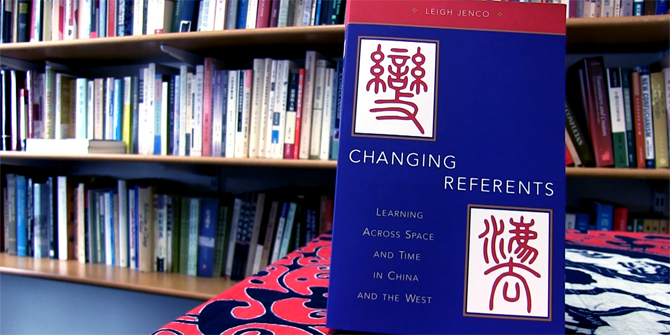
LSE alumni Carlos Garcia-Cueva explores what direction US-Mexican relations might take under the leadership of President-elect Donald Trump.
The victory of Donald Trump at the ballots has been a topic of discussion all around the world. There are concerns related to the effects of his administration in areas that range from defence to foreign policy, including questions about the future of American-European relations, as well as international trade, to mention a few.
In this regard, Mexico has been a core topic on the Trump agenda since the moment he announced his presidential intentions. Even before the US election last November, the Mexican government and society were alarmed by his rhetoric, which portrayed Mexico as a threat to the United States. It is not surprising that the evolution of candidate Trump -now President-elect has been closely followed in Mexico.
Trump, to a certain extent, has generated political turmoil in Mexico. Mexicans remain divided over Mexican President Enrique Peña Nieto’s approach to the President-elect, which has resulted in a significant decline in Peña Nieto’s popularity. The informal, yet perceived official, visit of the then Republican Candidate to meet with the Mexican President in August 2016 was viewed negatively by many Mexicans. On the one hand, there were those who supported the approach adopted by Peña Nieto and one of his closest allies, former Minister of Finance Luis Videgaray, now Minister of Foreign Affairs. On the other, Cabinet Members of the Federal Government, Congress, local authorities, as well as academics and a significant percentage of the Mexican population firmly disapproved of Peña Nieto’s “friendly” approach to an individual that had labelled Mexicans as “rapists, criminals and bad hombres”.
There are major concerns that the existing economic and commercial relations between the United States and Mexico will be hindered by the new incoming US administration. For example, Trump has actively threatened American companies that have production operations in Mexico with tariffs and other restrictions on trade. This approach that seems coherent with a protectionist rhetoric, and is perhaps better defined as “protectionist tweetplomacy”, has resulted in the cancellation of major projects of companies such as Ford Motor Company and Carrier in Mexico. The impact of such corporate decisions have been reflected in the markets with a loss of confidence and exchange rate of the Mexican Peso (MXN), because of a surge in demand for “safer” currencies, such as the US Dollar (USD).
However, other global companies such as BMW, Volkswagen, Audi, Kia and Toyota, have ignored the threats that seek to shift their production to the US. These companies still consider Mexico as an attractive production platform, with competitive costs, optimal business contexts, active logistical links, fiscal incentives and skilled manufacturing capabilities. For example, such a situation has resulted in the rise of economic poles in the country that have become powerhouses in the auto manufacturing and aerospace sectors. Additionally, the Mexican internal market and other Latin American countries are becoming more attractive, considering the constant rise in the consumption indexes in the region. It is likely however that the instability in the markets will continue until there is more clarity on the actual content of the Trump policies once he is in office, but certainly decisions of major businesses to stay in Mexico provide a degree of optimism.
It is evident that the close economic and commercial links between Mexico, the US and Canada cannot be eroded immediately despite arguments made against the North American Free Trade Agreement (NAFTA). Even in the unlikely event of a complete NAFTA elimination – although a renegotiation seems more likely – the relationship between Mexican and American companies, consumers and markets is a more complex process that has evolved rapidly over the last couple of decades. Mexico and the US are key trade partners in relation to exports and imports across both markets.
If the Trump protectionist rhetoric prevails in policies and decisions, Mexico and other countries that are currently facing similar situations will not likely sit and wait. There are other opportunities for integration and development of deeper economic and commercial relations with countries in Latin America, Europe and Asia. Let’s not forget that Mexico is one of the countries with the most trade treaties in the world, and this is a long-standing tradition in Mexican foreign policy.
I would like to conclude by referring to the issue of immigration, which has been one core area of historical concern for Mexican-American relations. On this subject it seems that steps taken against illegal immigration, such as deportations, will harden during the Trump administration. This will generate problems for Mexico regarding reintegrating citizens deported from the US, while also result in the separation of families at a substantial social cost. On the other hand, it should be noted that during the Obama administration the number of deportations doubled in comparison to the Bush administration, and the number of Mexicans living in the US illegally declined by a million in the same period[1]. The latter situation indicates that even without a rhetoric that seeks to target immigrants, the last US President endorsed actions that actively countered illegal immigration including deportations. Migratory reform is still pending, and although the possibilities for this in the Trump era seem more remote, for Mexico there are no substantial differences in the approach to immigration up to this point.
The issues outlined here are just a brief part of the complex matters underpinning Mexican-American relations, which also include security, counter-terrorism, cultural and social affairs and tourism, to mention a few. Although there might be room for change in official relations between the two countries, there are reasons to believe that no matter how different the incoming US administration is from the last 8 years in political terms, the future of Mexican-American relations will still provide opportunities. Nonetheless, let’s not forget that there will be Presidential elections in Mexico in 2018. These will take place in a country sharply divided by political and socioeconomic divergences, affected by corruption and the low popularity of its leaders. The outcome of the Mexican election will also shape the degree of interaction between the two countries and determine the extent of relations with our closest partner for years to come.
[1]Buchanan, L., Park, H. & Pearce, A. (2017, 01, 15). “You Draw It: What Got Better or Worse During Obama’s Presidency”. The New York Times. Available at http://www.nytimes.com/interactive/2017/01/15/us/politics/you-draw-obama-legacy.html?_r=1
Featured image credit: Noah Jacquemin
Carlos Garcia-Cueva holds an MSc in Regulation from the LSE, an MPA from Tec de Monterrey and an MA in Intelligence from KCL. He has developed his career in the Mexican Federal Government where he currently works in economic regulation and competition policy. He is also Associate Professor of Public Policy, Law and IR at Tecnologico de Monterrey in Mexico City. Contact: cgarciacu@itesm.mx and Twitter @cgarciacueva.
Note: this article gives the views of the author, and not the position of the LSE Department of Government, nor of the London School of Economics.






